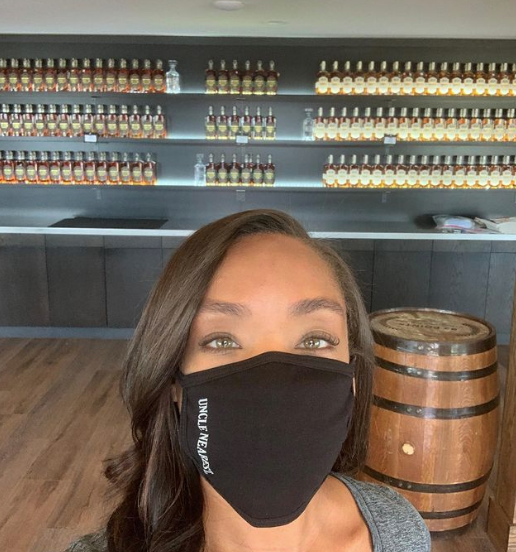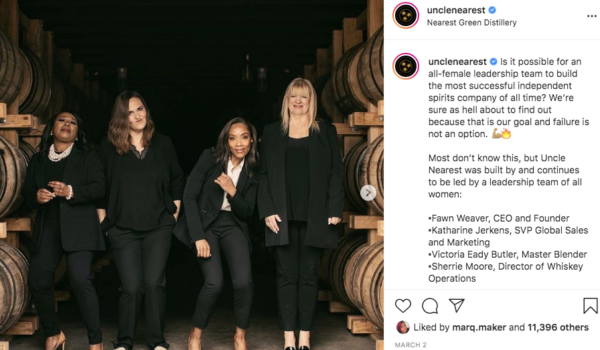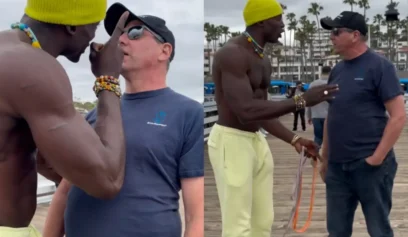Fawn Weaver is the Black woman behind one of the most awarded whiskey brands in America, Uncle Nearest Premium Whiskey, as well as the person funding the change to make the spirits industry more inclusive one business at a time.
Weaver entered the industry in 2017 when she founded the company as an homage to Nathan “Nearest” Green, the Black master distiller who taught Jack Daniels the trade but until four years ago remained widely unknown. Now, with more than 1.5 million bottles of the award-winning whiskey sold, Weaver is making sure other Black distillers can claim their stake in the industry.

With $50 million in capitalization thus far in the Uncle Nearest Venture Fund, Weaver will invest in brands that would otherwise not have the capital or reach to leave their mark on the white male-dominated industry. Weaver hopes a seed of $2 million each will help the next iterations of Uncle Nearest do just that.
“What that means to me is, they are not building to flip, they’re not building to sell. They’re building to create generational wealth,” said Weaver to The New York Times.
The fund, which was announced on the 100th anniversary of the Tulsa Race Massacre, will help women and people of color, but spirit brands that are Black-owned will be the investment priority. Fifty percent of investors are Black, including the privately-owned Uncle Nearest. Others who are interested in investing will have until the end of June to do so.
According to “The Spirits Business,” the top-selling whiskeys are Jack Daniels, Jim Beam, and Jameson — all named after white men. The industry is difficult to break into, but for people of color, lack of funding is the top issue, followed closely behind by the lack of connections to key industry players.
“It’s not that people of color don’t have an interest,” said Margie A.S. Lehrman, chief executive of the American Craft Spirits Association. “It’s that we find that they have no path of entry into the industry, no connections where others may.” She added, “It’s a very, very tough industry to break into, and if you’re a woman or a person of color, it’s even harder.”
Supporting other Black-owned spirit brands is a priority of Weaver’s. She says the small pool of brands that exist are widely unknown to those who are not intentional in seeking them out.

“For Black businesses in general, the biggest challenge that we generally have is no one knows that we exist,” Weaver told “HuffPost.” “So I do think supporting Black businesses is important because then people are going out and looking specifically for Black-owned brands. You don’t really have to do that with brands that are white-owned.”
In 2012, Jack from Brooklyn, became the first Black-owned distillery in the U.S. since Prohibition. While successful, the business closed within ten years. Weaver took notice of the brand and made it one of her first investment brands. With $2 million in funding, Jack from Brooklyn now has a path for a return. Co-founder Jackie Summers intends to bring back his popular Sorel by June 24 of this year, according to the site’s countdown clock.
Summers, who is co-chair of the Education Committee for the Tales of the Cocktail Foundation, has made speaking out about the lack of diversity in the spirits industry part of his career. Where people applauded him for being the first Black distiller since Prohibition (1920-1933), that distinction illustrates the decades of barriers faced by distillers like himself.
“I started talking about racism in my industry, writing articles in trade publications and speaking at industry events,” he told Brooklyn Magazine in February. “The best thing I can do, not just for my business but for my industry as well, and perhaps society at large, is to teach about the nature of marginalization.”
The second company to receive the fund’s $2 million investment is Equiano Rum Company. The rum is named after abolitionist movement figure Olaudah Equiano.


